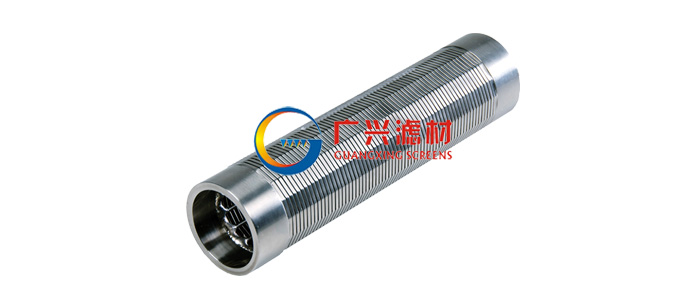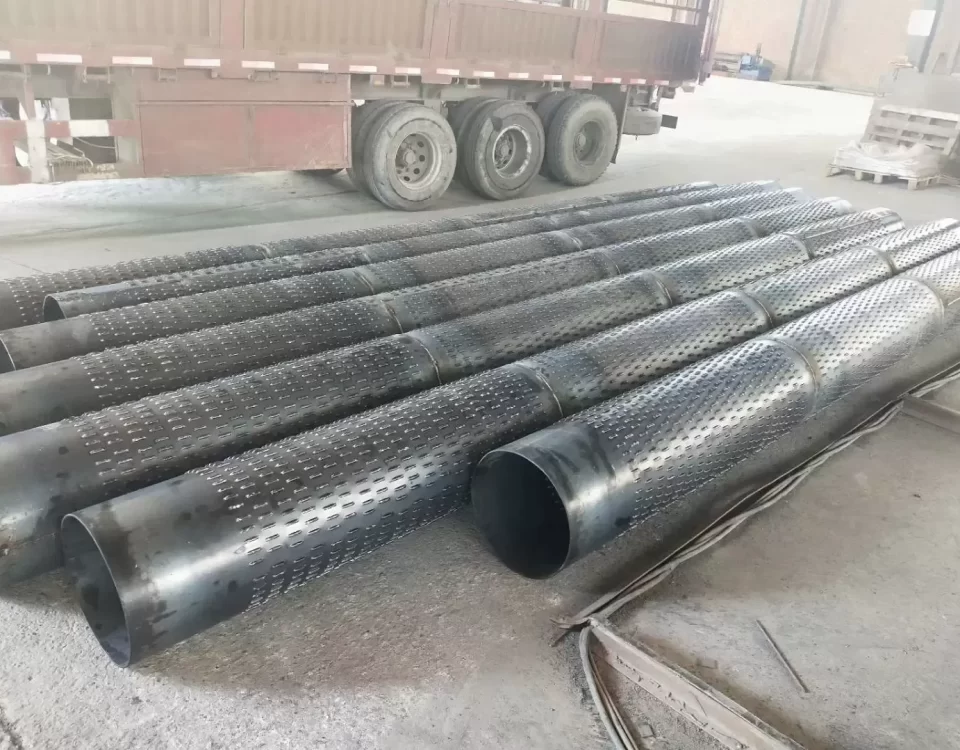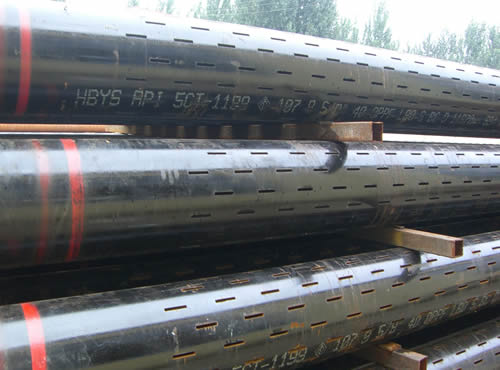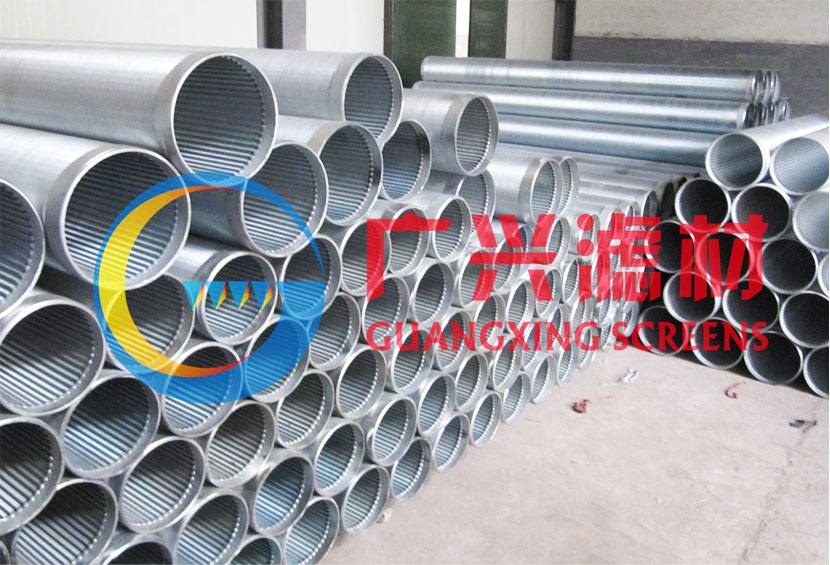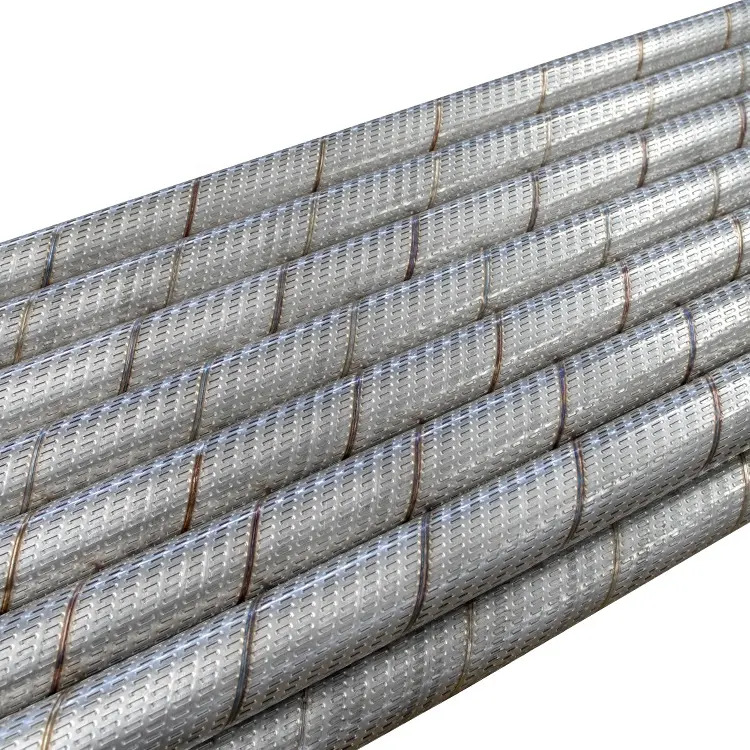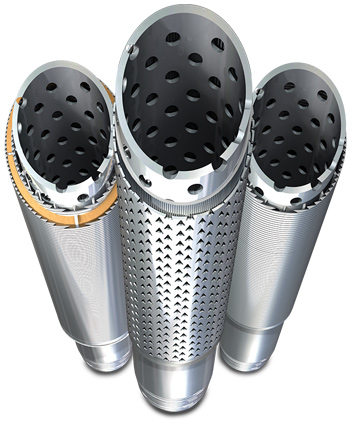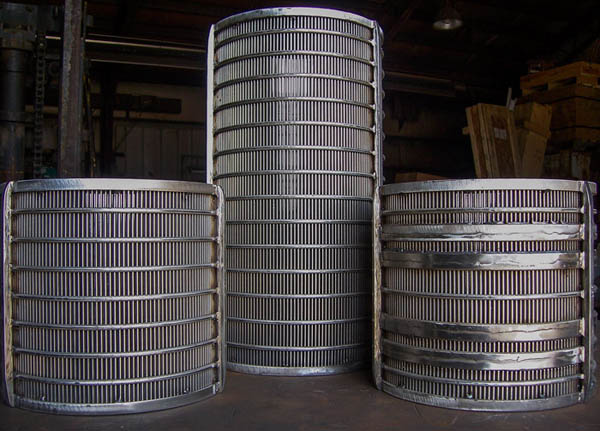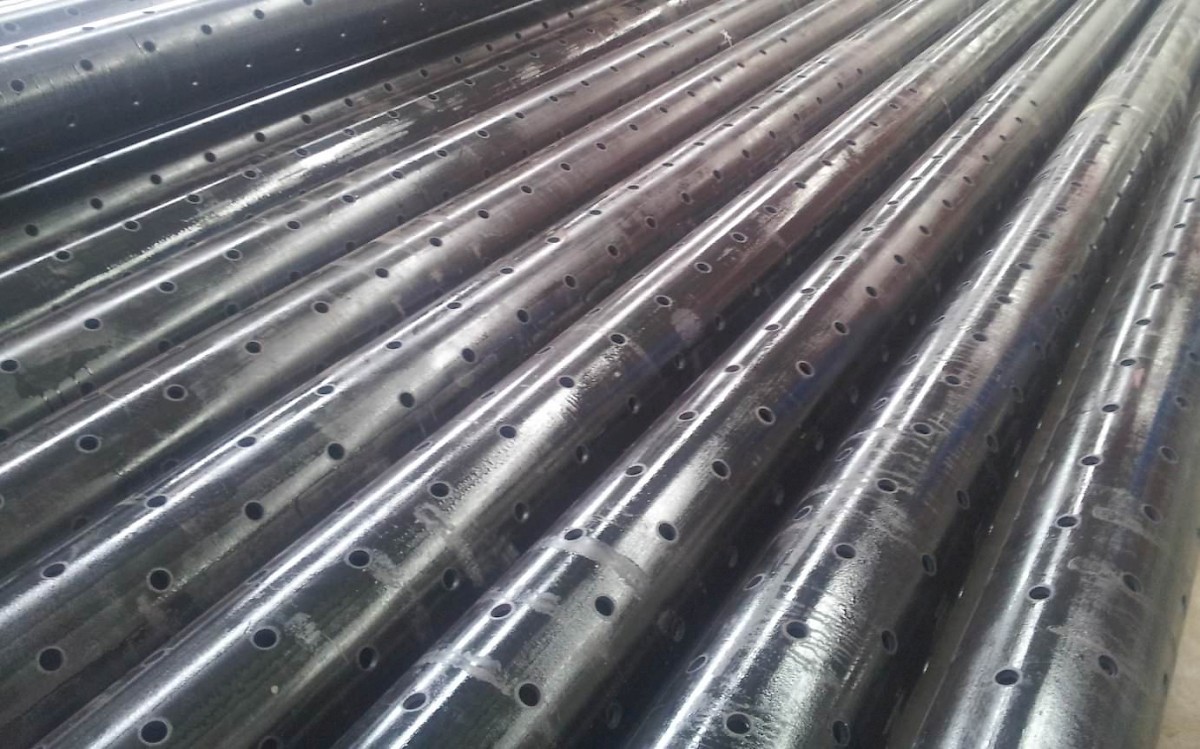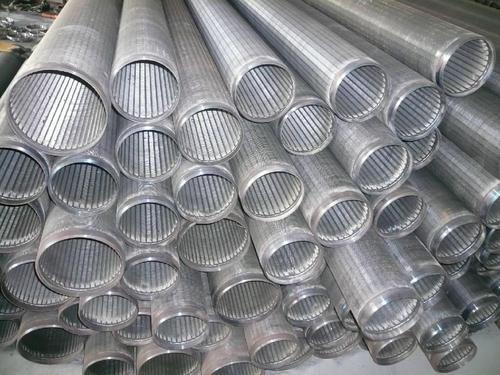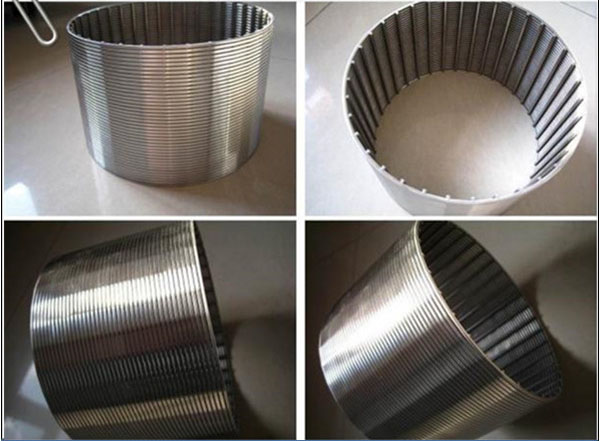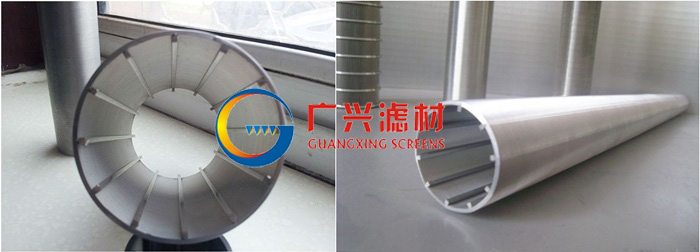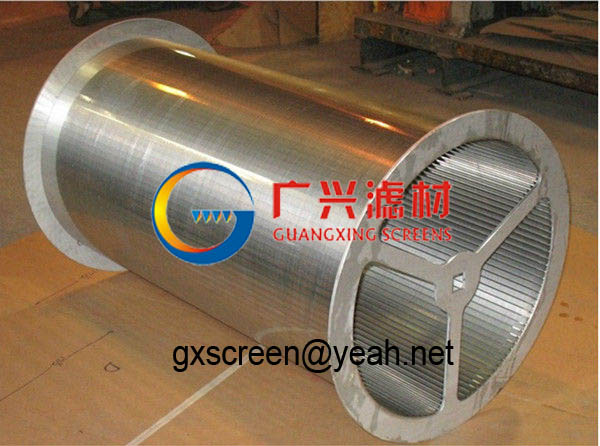Johnson Screens’ solution for improving the gravel pack — the Muni-Pak screen. For contractors, this state-of-the-art, pre-packed screen eliminates the need for a larger borehole, shortens the time required to drill a well and speeds development time. It simplifies the contractor’s work and improves successful well development.
For the well owner, the Muni-Pak screen offers long-term benefits. This innovation uses ceramic or glass beads as the filter media — a concept that reduces the likelihood of filter pack fouling from biofilm and encrustation, lowering overall well maintenance costs.
Johnson Screens’ solution for improving the gravel pack — the Muni-Pak screen. For contractors, this state-of-the-art, pre-packed screen eliminates the need for a larger borehole, shortens the time required to drill a well and speeds development time. It simplifies the contractor’s work and improves successful well development.
For the well owner, the Muni-Pak screen offers long-term benefits. This innovation uses ceramic or glass beads as the filter media — a concept that reduces the likelihood of filter pack fouling from biofilm and encrustation, lowering overall well maintenance costs.
Utilizes a smaller borehole
Eliminates gravel placement
Shortens the amount of time required to drill a well
Reduces development time
Has a thinner filter pack
Reduces overall maintenance costs
Muni-Pak Screen Specifications
| xz | xz | xz | xz |
Inner Screen Open Area – |
Outer Screen Open Area – |
|||||||||||||
| Size¹ (in.) |
Approx. Screen ID (in.) |
Approx. Screen OD (in.) |
Media Annular Thickness (in.) |
Screen Slot Size |
Screen Slot Size |
Approx. Screen Weight (lbs/ft.) |
||||||||||||
| xz | xz | xz | xz |
8 |
12 |
20 |
25 |
30 |
40 |
50 |
8 |
12 |
20 |
25 |
30 |
40 |
50 |
x |
|
2 x 4 |
2.2 |
4.5 |
0.85 |
11 |
15 |
22 |
26 |
30 |
36 |
41 |
20 |
28 |
42 |
50 |
57 |
68 |
77 |
17 |
|
3 x 5 |
3.0 |
5.7 |
0.97 |
16 |
22 |
33 |
39 |
44 |
53 |
60 |
25 |
36 |
54 |
63 |
72 |
86 |
98 |
23 |
|
4 x 6 |
4.0 |
6.7 |
0.94 |
20 |
28 |
42 |
50 |
57 |
68 |
77 |
30 |
42 |
63 |
74 |
84 |
101 |
115 |
25 |
|
5 x 7 |
5.0 |
7.7 |
0.87 |
25 |
35 |
53 |
62 |
71 |
85 |
96 |
34 |
48 |
73 |
85 |
97 |
116 |
132 |
27 |
|
6 x 8 |
6.0 |
8.7 |
0.84 |
20 |
29 |
45 |
54 |
62 |
77 |
89 |
27 |
39 |
60 |
71 |
82 |
101 |
117 |
35 |
|
8 x 10 |
8.0 |
10.8 |
0.84 |
27 |
38 |
59 |
71 |
81 |
100 |
116 |
33 |
48 |
74 |
89 |
102 |
125 |
145 |
55 |
|
10 x 12 |
10.0 |
12.8 |
0.84 |
26 |
38 |
60 |
72 |
83 |
104 |
122 |
31 |
45 |
71 |
86 |
99 |
124 |
145 |
70 |
|
12 x 15 |
12.0 |
15.0 |
0.84 |
31 |
45 |
71 |
85 |
99 |
123 |
145 |
36 |
53 |
83 |
100 |
116 |
145 |
170 |
85 |
|
14 x 16 |
13.2 |
16.0 |
0.64 |
36 |
52 |
81 |
98 |
113 |
141 |
165 |
41 |
59 |
93 |
112 |
129 |
161 |
188 |
100 |
|
16 x 18 |
15.2 |
18.0 |
0.64 |
41 |
59 |
93 |
112 |
129 |
161 |
188 |
46 |
67 |
104 |
126 |
145 |
181 |
212 |
115 |
|
18 x 20 |
17.0 |
20.0 |
0.78 |
39 |
57 |
90 |
109 |
127 |
160 |
188 |
44 |
64 |
101 |
122 |
141 |
177 |
209 |
128 |
The Muni-Pak’s dual-screen construction is four times stronger than standard rod-based screens, allowing more aggressive development and better immunity to unexpected hole problems—providing lower costs.
Applications of stainless steel muni-pak screen
Controls sand infiltration in new, high-capacity municipal, industrial and agricultural wells
Can be used as a liner in existing wells to eliminate the need for constructing a new well
Custom applications such as infiltration galleries
Environmental remediations
Horizontal applications
The Muni-Pak’s dual-screen construction is four times stronger than standard rod-based screens, allowing more aggressive development and better immunity to unexpected hole problems—providing lower costs.
Muni-Pak works great as a liner in existing well construction, eliminating the need the construction and the cost of a new.
filter pack is one of the most common designs used today for high-capacity municipal, industrial and agricultural wells. Before the installation of a filter pack, the contractor and the well owner must take into account some significant issues:
- The borehole must be sufficiently oversized to allow for adequate placement of the filter pack. In practice, an annular thickness of 3 to 5 in. is considered minimum. The oversized borehole is costly to the contractor (and therefore to the well owner) and keeps the crew on site for additional time.
- The filter pack must be carefully selected, placed and developed to avoid bridging and sand pumping.
- The well owner is concerned with long-term performance. Biofouling and encrustation are issues that will eventually affect performance.

